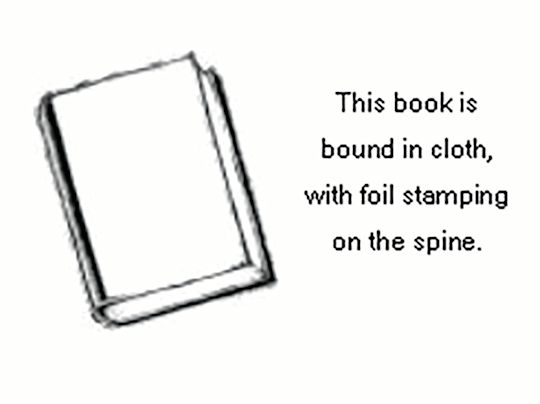- Home
- ACADEMIC
- Politics & International Relations
- Introduction to International Relations
- Debating Franklin D. Roosevelt's Foreign Policies, 1933–1945
Debating Franklin D. Roosevelt's Foreign Policies, 1933–1945
- Textbook
Debating Franklin D. Roosevelt's Foreign Policies, 1933–1945
- Textbook
Exam copy added to basket
Choose your preferred format. Please note ebook exam copies are fulfilled by VitalSource™.
Buy from Bloomsbury eTextBooks
You are now leaving the Bloomsbury Publishing website. Your eBook purchase will be with our partner https://www.vitalsource.com.
Your credit card statement will show this purchase originating from VitalSource Technologies. They will also provide any technical assistance you might require.
You must sign in to add this item to your wishlist. Please sign in or create an account
Description
Elected an unprecedented four times to the presidency, Franklin D. Roosevelt led the United States through some of the most dramatic and trying foreign and domestic episodes in its history. Coming to power in the throws of a crippling depression, Roosevelt quickly found himself having to juggle the need for tremendous domestic revitalization in a world menaced by burgeoning aggressor states. In Debating Franklin D. Roosevelt's Foreign Policies, noted historians Justus D. Doenecke and Mark A. Stoler offer differing perspectives on the Roosevelt years, finding disparate meanings from common data.
Finding Roosevelt astute at choosing the most effective option of those available, Stoler generally defends FDR's policies against their traditional critics. Conversely, Doenecke emphasizes a dangerous shallowness and superficiality in FDR's approach to foreign affairs, particularly in his first two terms. The contrary viewpoints of the authors, supplemented by carefully chosen documents, provide an ideal introduction allowing readers to examine the issues and draw their own conclusions about Franklin Roosevelt's foreign policy.
Table of Contents
Part I: The Roosevelt Foreign Policy: An Ambiguous Legacy, by Justus D. Doenecke
1: Roosevelt to William Phillips, Acting Secretary of State
2: Memorandum on Neutrality by R. Walton Moore, Assistant Secretary of State, August 27, 1935
3: President Franklin D. Roosevelt's "Quarantine" Speech, October 5, 1937
4: The Atlantic Charter, August 14, 1941 (White House News Release)
5: War on Submarines, Radio Address by President Roosevelt, September 11, 1941
6: Transcription of Press Conference at Casablanca, January 24, 1943
Part II: The Roosevelt Foreign Policy: Flawed, but Superior to the Competition, by Mark A. Stoler
1: The Neutrality Acts, 1935–1939
2: President Franklin D. Roosevelt's Proposal for Lend-Lease Aid to Great Britain, December 17 and 29, 1940
3: President Roosevelt's War Message, December 8, 1941
4: The Teheran Conference Minutes, November 29–30, 1943
5: The Churchill-Roosevelt Agreement on Atomic Energy, September 18, 1944
6: The Yalta Protocol of Proceedings
7: Roosevelt's Messages to Stalin and Churchill, 1945
Bibliography
Product details
| Published | Jun 22 2005 |
|---|---|
| Format | Ebook (Epub & Mobi) |
| Edition | 1st |
| Extent | 248 |
| ISBN | 9780742576353 |
| Imprint | Rowman & Littlefield Publishers |
| Series | Debating Twentieth-Century America |
| Publisher | Bloomsbury Publishing |
About the contributors
Reviews
-
Both scholars cover the whole of FDR's foreign policies in a concise yet nuanced fashion, they present intellectually consistent arguments that gibe with their own previous scholarship, and they bring authority to their different perspectives with objectivity and without any 'Cross-Fire' hype.
Garry Clifford, University of Connecticut
-
Among our best, and most provocative scholars who are writing on the FDR years, Justus Doenecke and Mark Stoler are also distinguished teachers. In this book their scholarship and teaching skills mesh to provide alternative overviews of Roosevelt-accompanied by well-chosen, revealing documents-that will trigger debates inside and outside of the classroom.
Walter LaFeber
-
Opens up the issues and sources for one of the critical periods of 20th-century history in a novel, interesting, and useful way.
David Reynolds, Cambridge University, author of From Munich to Pearl Harbor
-
In this provocative volume, two distinguished historians reappraise Franklin Roosevelt's highly controversial foreign policies from divergent perspectives. Roosevelt's record, they agree, was neither black nor white but mottled. But how mottled, and why, and compared to what alternatives? Roosevelt's defenders and detractors-and the still uncommitted-will profit from pondering the differing answers that Doenecke and Stoler offer.
George H. Nash, author of The Life of Herbert Hoover
-
Debating Frankline D. Roosevelt's Foreign Policies illustrates how events and policies are open to differing interpretations. As a result, it is an outstanding book for those embarking on the study of history in general and U.S. diplomatic history in particular.
Mary Glantz, The Journal Of Military History
-
There is no better way to become familiar with the fascinating journey made by FDR from inexperienced new president to an architect of victory and of the postwar world. Doenecke and Stoler neatly lay out the arguments over Roosevelt's policies, debates that are surprisingly relevant to the world of the early 21st century.
Warren F. Kimball, Robert Treat Professor of History, Rutgers University


































